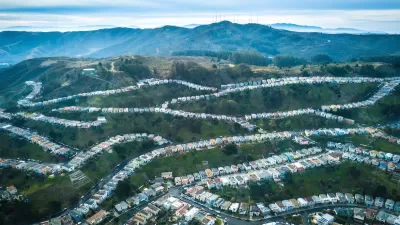Some of my acquaintances believe that climate change may end human life (or at least civilization) and that the only way to save humanity is to massively reduce economic growth and consumption. Other acquaintances believe that climate change is, if not an outright hoax, a minor problem- and that even the slightest attempt to regulate emission-creating industries will itself destroy American civilization.
Some of my acquaintances believe that
climate change may end human life (or at least civilization) and that the only
way to save humanity is to massively reduce economic growth and consumption. Other acquaintances believe that climate
change is, if not an outright hoax, a minor problem- and that even the
slightest attempt to regulate emission-creating industries will itself destroy
American civilization.
Most of these people are not scientists
(let alone scientists specializing in climate-related science), so I strongly
suspect that their opinions come from Al Gore's movie and Rush Limbaugh's talk
show, rather than from a comprehensive review of the
footnote-filled scientific papers addressing climate change. Nevertheless, they are as certain in their opinions
as real scientists are. How come?
A plausible explanation
was supplied by a Harvard Law Review article I recently read.* The article links disputes over
technical issues to clusters of values that form competing cultural worldviews,
most notably "egalitarian" and "individualist" worldviews.
The article asserts that egalitarians are
"naturally sensitive to environmental hazards, the abatement of which justifies
regulating commercial activities that produce social inequality." In other words, egalitarians are predisposed
to be hostile to large-scale capitalism, and will thus naturally believe any
theory that supports this predisposition.
When capitalism failed to deliver economic growth in the 1930s, some
intellectuals supported communism as more likely to do so (and perhaps more
likely to enhance the status of intellectuals by dragging down corporate elites
that outrun them in the race for wealth and power). And when capitalism has delivered economic
growth, modern egalitarians decided that growth wasn't so great after all.
By contrast, the article notes,
"individualists" generally "dismiss claims of environmental risk as specious,
in line with their commitment to the autonomy of markets." In other words, individualists believe that
(1) government should only regulates transactions that cause harm to others,
and (2) this no-harm rule justifies a small government that does not interfere
with commercial activity except to prohibit force and fraud. But proposition (2) makes sense only if
most commercial transactions in fact do not cause significant harm to
nonparties (or to use an economic term, "externalities"). But if nearly all commerical transactions do in fact
create dangerous greenhouse gas emissions, proposition (2) fails,
which means that the entire ideology of individualism is based on a falsehood
(the idea that business activity does not generally create externalities
justifying regulation). Because climate
change appears to threaten the core idea of individualism, individualists will engage in considerable intellectual gymnastics to avoid climate regulation.
In sum, most people (other than a few
scientists and economists who actually know what they are talking about)** with
strong opinions on climate policy are responding less to objective reality than
to their cultural values. As a practical
matter, this means that Americans are going to have a great deal of difficulty
reaching a popular consensus on climate policy; because the issue is so
technical, ill-informed public opinion is likely to be impervious to new
scientific evidence. The stalemate can only be broken through
policies that appeal to both sides.
Indeed, the climate change stalemate
provides a lesson for policy entrepreneurs in other fields (such as
planning-related issues). Policies that
attract broad popular support will be policies that attract support from both
egalitarians and individualists. For
example, zoning (despite its many flaws) is popular because it appeals to both
egalitarians' desire to bridle developers and to individualist homeowners'
desire to protect their property rights (since even individualist homeowners
often see their neighborhood as part of their property).
*The cite is 119 Harvard Law Review 1071, and the article is available online at http://www.harvardlawreview.org/issues/119/feb06/kahan.pdf
**I make no claim to be part of this
group.

Depopulation Patterns Get Weird
A recent ranking of “declining” cities heavily features some of the most expensive cities in the country — including New York City and a half-dozen in the San Francisco Bay Area.

California Exodus: Population Drops Below 39 Million
Never mind the 40 million that demographers predicted the Golden State would reach by 2018. The state's population dipped below 39 million to 38.965 million last July, according to Census data released in March, the lowest since 2015.

Chicago to Turn High-Rise Offices into Housing
Four commercial buildings in the Chicago Loop have been approved for redevelopment into housing in a bid to revitalize the city’s downtown post-pandemic.

Google Maps Introduces New Transit, EV Features
It will now be easier to find electric car charging stations and transit options.

Ohio Lawmakers Propose Incentivizing Housing Production
A proposed bill would take a carrot approach to stimulating housing production through a grant program that would reward cities that implement pro-housing policies.

Chicago Awarded $2M Reconnecting Communities Grant
Community advocates say the city’s plan may not do enough to reverse the negative impacts of a major expressway.
City of Costa Mesa
Licking County
Barrett Planning Group LLC
HUD's Office of Policy Development and Research
Mpact Transit + Community
HUD's Office of Policy Development and Research
City of Universal City TX
ULI Northwest Arkansas
Town of Zionsville
Write for Planetizen
Urban Design for Planners 1: Software Tools
This six-course series explores essential urban design concepts using open source software and equips planners with the tools they need to participate fully in the urban design process.
Planning for Universal Design
Learn the tools for implementing Universal Design in planning regulations.



























